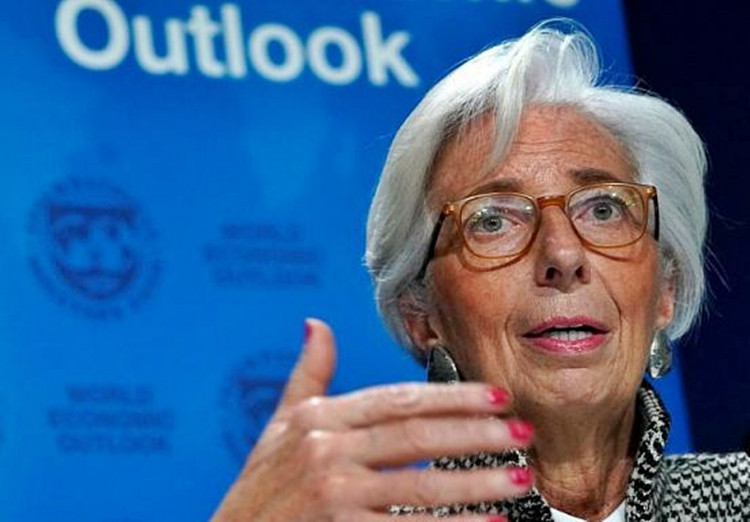The euro experienced an uptick against the U.S. dollar on Wednesday, driven by European Central Bank (ECB) President Christine Lagarde's statement that inflation remains excessively high. The euro's value increased by approximately 0.2% against the U.S. dollar, reaching a five-week peak of $1.0795 around 9 a.m. London time, based on FactSet data.
Lagarde addressed the issue of inflation in a speech on Wednesday, stating, "A significant policy adjustment has already been made: since July last year, we have raised interest rates by 350 basis points. However, inflation remains high, and the uncertainty surrounding its future trajectory has grown. Consequently, a solid strategy moving forward is crucial."
Lagarde further emphasized the ECB's commitment to maintaining price stability, declaring that "bringing inflation back to 2% over the medium term is non-negotiable."
Despite recent turbulence in the banking sector, the ECB opted to raise its interest rates by another 50 basis points last week, offering no insight into potential rate adjustments in the future. Lagarde acknowledged the current environment's heightened uncertainty, asserting that "with such uncertainty, it is even more vital that the rate path be dependent on data."
The ECB's earlier projection suggested headline inflation would decrease over the year, settling at 5.3% by the close of 2023 and 2.9% in 2024. These estimates, however, do not factor in the recent banking sector disruptions.
Lagarde commented on the added risks and unclear risk assessment, saying, "These tensions have introduced new downside risks and have blurred the risk assessment. Moreover, many of the projections' assumptions, such as those related to fiscal policies, and energy and food prices, are subject to fluctuations. This creates further uncertainty surrounding the baseline for both growth and inflation."
Joachim Nagel, German central bank chief and ECB member, echoed Lagarde's concerns about persistent inflation, stating that the battle against high inflation "is not over" and that "price pressures are strong and broad-based across the economy." His comments were featured in the Financial Times.
Meanwhile, ECB Chief Economist Philip Lane offered a more dovish perspective, suggesting that there are reasons to anticipate a gradual easing of underlying inflation measures over time, as reported by Reuters.





